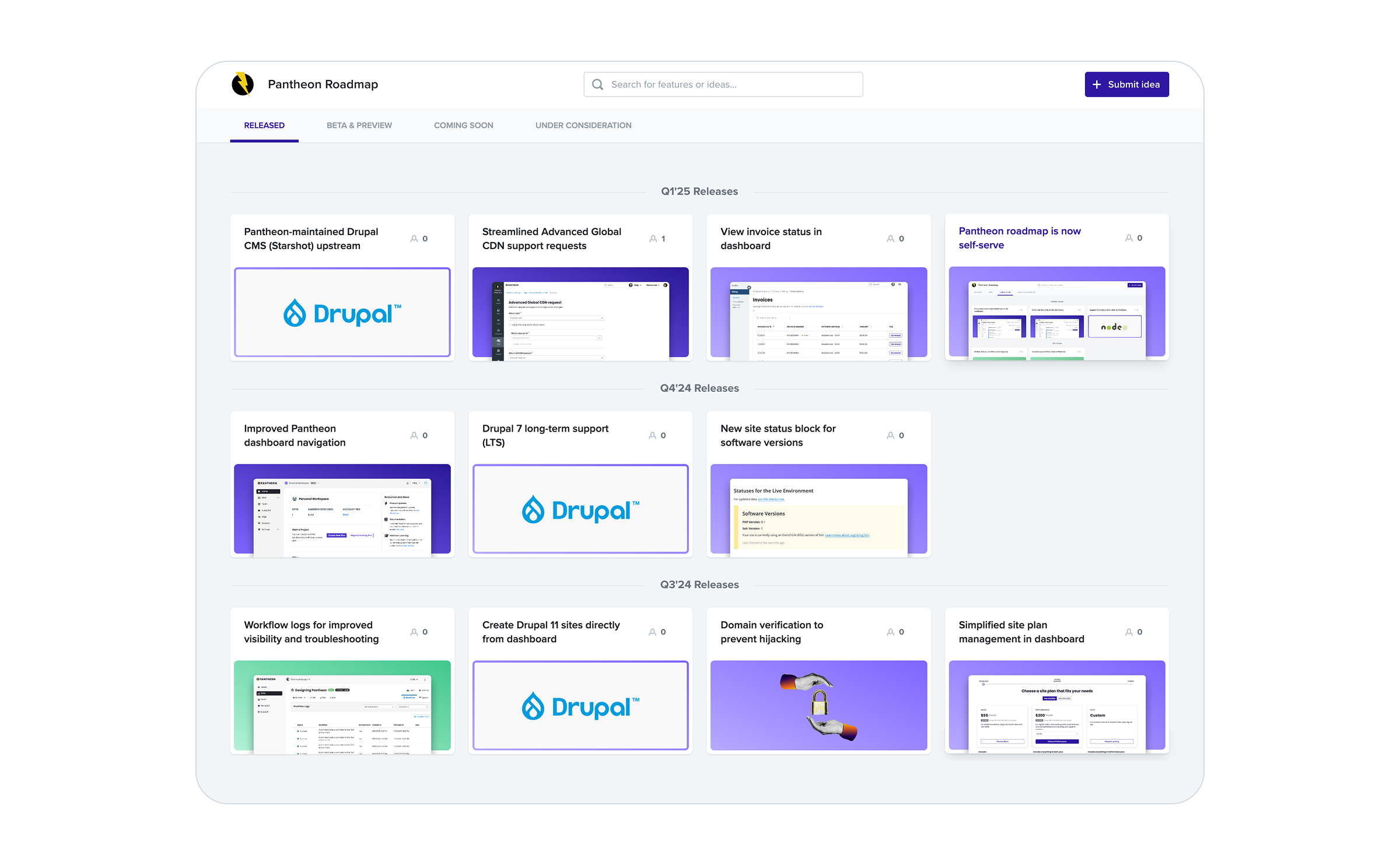DXP vs WebOps: What's Best for Your Web Team?
Image

Editor's note, April 20, 2022: In the two years since we published this blog post the shortcomings of monolithic DXPs have become clearer in the industry. The term "Composable DXP" is picking up steam as a descriptor of the stack-based approach we described here.
Now in 2022, it's no longer a matter of "DXP vs. WebOps." Instead, teams can ask themselves how they can organize their website operations to best compose a digital experience platform that will meet their needs today and tomorrow. Web teams succeed when their tools and practices get better over time. That requires flexibility and evolution. A monolithic DXP that takes a year to deliver against the needs you had last year will not serve you well next year. Or the year after that.
With the right technology partners, marketing teams can own and operate their website(s) and reduce their reliance on external IT departments. This leads to seamless integration of brand voice into site design and functionality. And means those who are in-tune with audience needs are ultimately accountable for driving growth goals—even when they don't have programming or development experience.
The challenge is finding the technology and approach that suits the needs of your marketing team, and your entire organization. If you’re already looking into it, you might know that two platform types rise to the top: DXPs and WebOps (suites and stacks). But what’s the difference?
More importantly, which is best for your team? Here’s what you need to know.
What Is a DXP?
Digital Experience Platform (DXP) is an enterprise software category that evolved from traditional content management systems. DXP vendors target businesses undergoing digital transformation. These platforms aim to provide better customer experiences through an integrated suite of tools. This allows marketing and web teams to manage the “digital experience” across multiple channels: advertising, email, social, web, etc.
Despite the acronym, most DXPs are not actually 'platforms' in a technology sense. Rather, they are software suites that have some level of integration and can accomplish a variety of marketing goals and tasks.
Most often, the tools in a bundle originate from separate vendors and are acquired and brought together under one umbrella by a single vendor. This suite is then marketed as a one-size-fits-all solution for digital transformation. DXP’s promise is to deliver “a single pane of glass” viewpoint of all that is happening digitally for an organization—a compelling executive value proposition.
Potential Pitfalls of a DXP Suite
CMOs are rightly attracted to the idea of a dashboard that connects the marketing and analytics solutions under the DXP umbrella. However, the attraction sometimes turns out to be fleeting once the rubber meets the road.
As mentioned above, a typical DXP includes a variety of technology tools from a variety of origins. Usually, a few popular, well-known tools top the bill, supported by lesser-known tools that are included to make the platform appear comprehensive.
In practice, these suites sacrifice depth for breadth. The ‘filler’ tools crowd the dashboard and complicate the installation process and learning curve. Many DXP customers find the experience disjointed at best, and given that some (if not most) of the suite members probably started out as acquisitions, the promises of turnkey integration often prove hollow.
In addition, most DXPs are not delivered as cloud solutions. Instead, they are architected as old-school enterprise software: traditional managed hosting infrastructure, long build timelines, and a tech team for support and maintenance. Implementation and the ongoing evolution of a DXP often requires a large systems integration firm, such as Accenture or Deloitte, which only adds to the time and overhead of getting the system live.
In the worst case scenario, a DXP launches years late, millions of dollars over budget, and with a spec targeting a market that no longer exists. Because they’re such big builds, the ability to iterate is limited. There’s no pivot, so whoever made the decision (and all the folks downstream from them) are effectively stuck with it until they can muster up the budgets and will to replatform yet again.
What Is WebOps?
Website Operations is a broader cultural movement as well as a technology approach. In addition to leveraging true platforms, it also encompasses people and processes to foster collaboration and productivity.
A WebOps platform powers websites and supports cross-functional teams. The entire team, including content editors, stakeholders, designers, and developers, works in an agile environment where every iteration is visible to all team members.
The goal of WebOps is to allow many web properties to flourish, while maintaining governance and strengthening best practices. This provides a fantastic combination of value: faster time to market, better delegation and accountability, with reduced overall overhead.
WebOps Advantage: A Stack Approach
Your teams’ needs and requirements will change at the same pace as the wider market, faster if you are an innovator. The tools you employ need to be dynamic to support this change. With WebOps, users are not locked into an integrated suite of tools. Instead, WebOps platforms prioritize the ability to continuously evolve and change the tech “stack” to support business goals.
This stack approach empowers teams to work with best-of-breed solutions with quick implementation. Unlike a DXP that comes preloaded with a suite of tools, some of which you may never use, a WebOps platform gives stack builders the agility to swap out components for newer models at will. This gives teams the flexibility to experiment in optimizing new technologies or finding better tools. The end result? Prioritizing time to market, delivering uncompromising UX, and driving business value.
WebOps Advantage: Strategic Control
Anyone who is accountable for web-driven business outcomes needs strategic control of the technology, timelines, and tasks involved in website management. That includes virtually every marketing leader. When each iteration is subject to red tape and political battles, websites stall and quickly become stagnant.
A WebOps environment prioritizes strategic control for all teams involved, putting ownership in the hands of those who need it. For businesses with multiple websites, WebOps shines by lowering the operational cost of managing a site portfolio, while enabling complete flexibility. Visibility of iterative work by all team members creates accountability, and environments can easily adapt to the changing needs of the organization.
Evaluate Your Needs
Software evaluations can be tedious, time-consuming and are often delayed by personal or team preferences. The decision between a DXP or WebOps platform will ultimately come down to the needs and structure of your organization.
Those who want to commit to an all-encompassing solution with a managed deployment may prefer the DXP route. Those who want to own their technology decisions and operate in the cloud will find WebOps more attractive.
Pantheon is a WebOps platform that exists to serve the marketer’s most valuable digital asset — the website — by opening up new avenues of operation and collaboration. Websites on Pantheon can evolve at the same pace as the rest of the technology landscape, rather than lagging behind or requiring kludgy workarounds.
With collaborative, agile, and easy-to-use workflow for developers and their stakeholders, our customers have the ability to take control of their site, making it a foundation of a more comprehensive, more effective MarTech stack.
Learn more about our WebOps platform by watching our demo.
You might also like:


